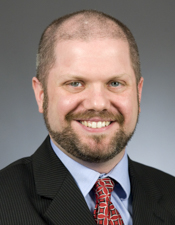Private property I&I prevention could be partially publicly funded under bill going to governor
Upgrading a sewer line doesn’t sound pleasant and is not a glamorous or visible home upgrade, but it can be important.
A backup could be worse and costly. Inspections for a problem are generally a few hundred bucks, but repair costs for a homeowner can exceed $10,000.
To help, Rep. Mike Freiberg (DFL-Golden Valley) and Senate President David Osmek (R-Mound) sponsor HF1359/SF1782* that would allow the Metropolitan Council and other local governing entities, such as townships, to establish inflow and infiltration prevention programs to make loans or grants to private property owners. Cities already have this authority.
Passed 116-14 by the House Monday, 11 days after it was passed 66-0 by the Senate, the bill’s next stop is the desk of Gov. Tim Walz.
Inflow and infiltration is groundwater and stormwater that enters a sewer system through faulty infrastructure, such as root intrusion or cracked pipes.
In the Twin Cities metropolitan area, private service laterals connect to city pipes which connect to the Metropolitan Council’s regional wastewater system. Collection systems can be damaged when they are forced to transport more flow than they are designed to handle.
Increased precipitation and population growth in the Twin Cities metropolitan area has resulted in more water coming in to the system; however, about 20% of the currently collected volume that gets treated as wastewater is actually inflow and infiltration that does not need to be treated.
“Cities and townships in the metro area report at least 50% of I&I comes from private property,” Freiberg said.
Regional system capacity improvements with an estimated $1 billion price tag have been deferred because inflow and infiltration has been addressed for publicly owned infrastructure, paid for through bond funds and fee revenue.
Freiberg said a voluntary mitigation program for private property would be more cost efficient than building larger and additional infrastructure to treat clear water. He said the council has proposed to allocate part of its Pay-As-You-Go capital program, funded through a municipal wastewater charge, to offset this change.
Related Articles
Search Session Daily
Advanced Search OptionsPriority Dailies
Speaker Emerita Melissa Hortman, husband killed in attack
By HPIS Staff House Speaker Emerita Melissa Hortman (DFL-Brooklyn Park) and her husband, Mark, were fatally shot in their home early Saturday morning.
Gov. Tim Walz announced the news dur...
House Speaker Emerita Melissa Hortman (DFL-Brooklyn Park) and her husband, Mark, were fatally shot in their home early Saturday morning.
Gov. Tim Walz announced the news dur...
Lawmakers deliver budget bills to governor's desk in one-day special session
By Mike Cook About that talk of needing all 21 hours left in a legislative day to complete a special session?
House members were more than up to the challenge Monday. Beginning at 10 a.m...
About that talk of needing all 21 hours left in a legislative day to complete a special session?
House members were more than up to the challenge Monday. Beginning at 10 a.m...
